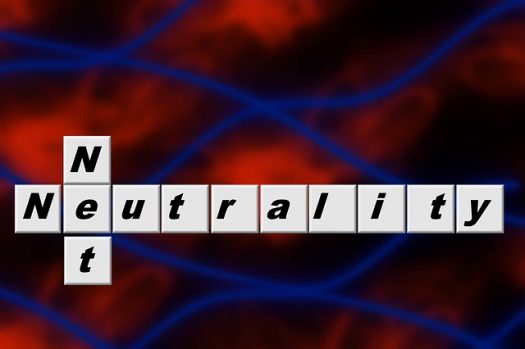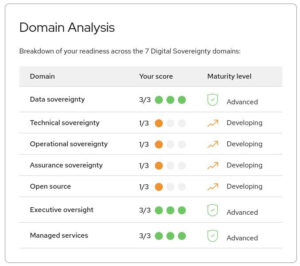One of the things we can expect to see after Trump takes office in January is the demise of Net Neutrality, which some say will signal the end of a free Internet.

Op-ed
News organizations that like to have obituaries written and ready to go to bed well before a death actually occurs might want to go ahead and assign someone the task of writing an obit for Net Neutrality. Without a doubt, one thing that’s sure to happen when Trump begins his weekly commute to the Oval Office is an end to the legal principle that Internet service providers should treat all Internet traffic equally.
Commissioner Ajit Pait, the man most likely to be appointed Trump’s head of the FCC, at least on an interim basis, pretty much put that icing on the cake last week. Speaking before a luncheon celebrating the tenth anniversary of the Free State Foundation, a “bipartisan think tank” that advocates “free market, limited government, and rule of law,” Pait said, “On the day that the Title II Order was adopted, I said that ‘I don’t know whether this plan will be vacated by a court, reversed by Congress, or overturned by a future Commission. But I do believe that its days are numbered.’ Today, I am more confident than ever that this prediction will come true.”
ISPs, of course, don’t like Net Neutrality any more than big business likes any regulation — other than those that benefit them. They claim it places a burden on them and that they need the ability to prioritize traffic so that “important” traffic can be put in the fast lane while not so important traffic is relegated to the slow lane. Net Neutrality, they say, would cost them money on the equipment needed to give all traffic equal footing.
This argument didn’t really make sense 15 years ago when everything from servers to storage was more expensive, and it certainly makes no sense now when servers come with commodity pricing. The ISPs are right about one thing; it is about money. Money to be put in their pockets.
This isn’t about throttling text based websites to make sure that sites that depend on a fast connection to work — Netflix, Skype or Vonage, for instance — can get their product delivered. Just the opposite. ISPs want to have the ability to hold a figurative gun to the temples of companies that require reliably fast connections, and charge them a premium for a ride in the fast lane.
Think not? In 2014, during another period when it appeared that Net Neutrality’s days might be numbered, Netflix reluctantly struck deals with some of the larger ISPs to assure the availability of the bandwidth it needs for its service to work properly. The improvement was immediate. That August, before striking a deal with Netflix, Verizon was seventh on a list kept by Netflix ranking the speed it was getting from major ISPs. A month later, after signing the deal, Verizon topped the list, becoming the fastest carrier for Netflix in the U.S.
Who pays for this? Duh… Its the only place where trickle down economics actually works.
Those who believe in the “magic of the marketplace” might think this is fair. After all, Netflix consumes bandwidth at the rate that Cadillacs of old consumed gasoline, so why shouldn’t they have to pay for it? Especially since all of the other video providers will be paying too — meaning it’ll be a level playing field.
Those who know that the “magic of the marketplace” is, like all other magic, made of smoke, mirrors and diversion, know differently. The playing field is not level — and hardly ever is.
Example: one of Netflix’s biggest competitors is Hulu, which is owned in part by Comcast, with 17 million customers the country’s largest broadband ISP, and Time Warner Cable, which is ranked third, with 14 million customers in 39 states. When Comcast customers use Hulu, the data used does not count against their data caps, as it does when they use Netflix. When Net Neutrality is killed, Netflix can expect the same lopsided treatment, and will need to pay Comcast for speed while Hulu will not.
This uneven playing field won’t only apply to streaming video. Most, if not all, cable companies also offer telephone service these days, and its a given that VoIP services such as Vonage will be held for ransom if they expect enough speed for reliable telephone service.
The list goes on.
The death of Net Neutrality isn’t the least of our worries, however, when it comes to Trump and telecom deregulation. During his campaign, the presidential apprentice also vowed to completely do away with the FCC. Considering that the FCC is responsible for allocating the use of all radio frequencies, and has been since the passage of the Communications Act of 1934, I’m wondering how that’s going to work out for the telcoms’ wireless services.
Stay tuned…
Christine Hall has been a journalist since 1971. In 2001, she began writing a weekly consumer computer column and started covering Linux and FOSS in 2002 after making the switch to GNU/Linux. Follow her on Twitter: @BrideOfLinux











Yup. We’re screwed.
Needless to say, you’re absolutely correct. I’ve been telling people all along, losing net neutrality will result in higher internet costs. I can imagine the CEOs wide-eyed, drooling, and panting in anticipation of all the profit they’ll be making once net neutrality is dead.
We in Australia have never had “Net Neutrality”. Our carriers have always shaped and charged according to their profit needs, which is why Australian consumer Internet costs have been among the highest in the world, while our infrastructure has been among the slowest, and we have only 2 (two) carriers, so there has never been competition.
Up until now, for all your winging, you yanks have enjoyed some of the worlds best Internet connectivity in both consumer cost and speed.
Welcome to my world.
Better than WW3 with Clinton
Net neutrality has been dead for several years now, Christine. The Obama administration (as with most things) had a lot of wonderful words to say, but refused to actually do anything in support of it.
One of the things we can expect to see after Trump takes office in January is [..] the end of [..] freedom
FTFY
Trump is an idiotic greedy bastard. All of his cabinet picks reflect that mindset.
Right. And all cars should cost the same, and all houses, and hamburger should cost the same as steak, and we should all pay Photoshop prices for gimp, and all make the same money even if not all of us work equally hard, and we should all strives toward that magical goal of marxist utopia. What crap. If you don’t think it’s fair that Verizon gives better deals to Netflix, then cancel your service and move to another carrier. Crap like net neutrality is no better than price controls, which lead to shortages and lousy service. We’ve endured 8 years of this horrible administration and a lot of us are tired of it and want something different. Whiners like this will never be happy until the government controls and regulates everything.
@klaude
It’s not about government control, it’s about freedom FROM control.
Net neutrality wouldn’t need to be a thing if there were real COMPETITION with internet providers. There ISN’t ANY competition and so it IS needed. Without it, customers will be trapped into using crappy providers who will strangle all competition on the net in favor of their own crappy ‘services’. Believe me, the big providers are drooling over this possibility.
The problem with saying “Yeah, an ISP should be able to charge whatever it wants to Netflix” is ignoring the fact that it isn’t Netflix who is using their bandwidth…it is the ISP’s paying customers trying to use the service they ALREADY PAID FOR. Letting an ISP do this means the ISP can make and break services like Netflix by giving breaks to their own favored services. Since many ISP’s are actually large media conglomerates that also own a large amount of content, that means they have a vested interest in destroying all the other services. Forcing every service on the internet to cut deals with every ISP on tyhe planet isn’t scalable. Net neutrality solves this by allowing the next Netflix or Google to be started by anyone, anywhere, without needing deep pockets to cut a thousand big deals ahead of time. ISP’s should be treated like public utilities…they can charge you for the service and the volume of data going through their pipes…but should have ABSOLUTELY NO SAY in what that data is.
If you think is was bad for the last eight years, get ready for a big shock. It’s going to get worse…Trump was put into power by the biggest bunch of morons ever to vote, and it shows.
We’ll see.
@Mike
Well said. I suspect klaude is a Trump troll; ie, spouting the party line without any real awareness re the details of the issue. Apparently klaude didn’t read tracyanne’s comments about internet providers in Australia where they have no net neutrality.
Maybe klaude doesn’t understand the current market dynamics. Providers have deliberately held back on building out their networks or, in some cases, even maintaining them. The Chattanooga fiasco is testimony to how they operate. If a city tries to build its own network, the providers suddenly want the government (you know, that BIG government) to protect their interests. Suddenly competition is bad and big, intrusive government is good. And yet, this industry continues to report enormous profits and continues to consolidate, thereby reducing competition (aka, choice) even more.
I suppose there is a chance something good could come out of the loss of net neutrality, but if tracyanne’s report re Australia is accurate, it seems unlikely. Besides, I haven’t heard one CEO or industry expert say that getting rid of net neutrality will enable them to improve service for consumers or reduce costs.
I remember the mid-90’s in an ex-communist country. The government was controlling every single business via the prices of electricity. The quoted price per MWh was about 10 times higher than in the other European countries, so everyone was being given a “favor” by the government by giving them the actual price. Those who did not toe the line were falling out of favor and were bankrupted. They were also told that if they did not like the price, they were free to build their own power lines. It was very effective.
@klaude
I’m always amused by how Trump supporters think that simply saying something makes it true.
It’s important to recognize that for the last 8 years we’ve had a Republican dominated congress. And when Boehner retired, he said he was tired of dealing with the uncompromising extremists within the Republican party (eg, comparing Cruz to Satan). So IF the last 8 years are so horrible (which the economic evidence indicates is untrue), congress shares responsibility for that outcome. Further, this congress has had the lowest approval rating of any before it.
@GNUguy
> “I’m always amused by how Trump supporters think that simply saying something makes it true.”
Why shouldn’t they? It’s obvious Trump thinks the same way.
Typical politicians may lie and distort facts to make their case, but Trump is completely divorced from reality. He simply does not care that every word coming out of his mouth is insane/stupid/false as long as it plays well with the uneducated redneck racists supporting him.
@Mike
Yeah, you got that right. I was going to point out how Trump has failed miserably when he’s fact-checked (ie, proven to be a liar), but his supporters can’t absorb facts very well, so I thought I’d keep my comment shorter. It’s difficult for them to read all those words and think at the same time.
What I’m looking forward to is seeing how Trump’s statement that “American workers are too expensive” finally registers with his supporters. What his statement implies is he might bring jobs back to the US, but it’s unlikely those angry white guys are going to be getting the same wage they got back in the day.
@Klaude: “If you don’t think it’s fair that Verizon gives better deals to Netflix, then cancel your service and move to another carrier.”
And if I don’t like the service I’m getting from Cox, I can just sell my house and move somewhere where there’s another broadband provider.
@Mike >>Trump was put into power by the biggest bunch of morons ever to vote, and it shows.
That would be the Electoral College… Trump lost the popular vote. Unfortunately US Citizens don’t actually get to elect their President.
@tracyanne The Electoral College hasn’t voted yet. And in many states, electors are compelled by law to vote for whomever won their state.
“US citizens don’t actually get to elect their president.”
Just like in Australia, where most of the duties and responsibilities of our president are divided between the Governor General (appointed by the Queen) and the Prime Minister, the leader of whatever party has a majority (or can form a coalition with a majority), in the House of Representatives. A little different in execution, but still meaning that Australian citizens don’t directly vote for the people who most represent the political face of their nation.
I’m waiting for Google to practice a little Net Non-Neutrality on — say — Comcast. “Your users _want_ our valuable services. If you want your users able to access google search, gmail, youtube videos, any website that uses doubleclick, etc., you’ll pay us $1,000,000/hour, payable in advance.”
@Christine Hall
You are correct, But ALL Australian citizens are aware of those facts.
We don’t have the mistaken belief that we get to vote for the GG or in reality the PM, and nor does any candidate canvass the electorate to be elected as GG.. although a significant number of Australians, possibly a majority would like the the office represented by the GG to be a position elected by the majority, and not as a representative of a foreign monarch, but that’s another issue.
When we vote for a party, we expect that the leader of that party will be the PM, but are also aware that it doesn’t have to be so.
So I have a question:
If the President of the US has to be elected by an Electorial College, and they have not yet voted, and Trump did not win the popular vote, how does he get to be President elect?
@Rich
I think you’ve got something there.
Unfortunately Comcast would probably transfer the cost to their customers. After marking it up 150%. You know… for all the trouble they went through to make Google available. Because they have a fiduciary responsibility to their investors.
@tracyanne
> “If the President of the US has to be elected by an Electorial College, and they have not yet voted, and Trump did not win the popular vote, how does he get to be President elect?”
Because he will win if the electoral college votes entirely as pledged which they typically do.
https://en.wikipedia.org/wiki/Faithless_elector
At no time in history have faithless electors changed the outcome of a presidential election (although as the wikipedia article mentions, a bunch of abstaining electors once caused the vice presidential candidate to be picked by the Senate…who picked the same candidate anyway.)
It’s a stupid system, but there’s little hope of fixing it right now. It can’t be abolished without a Constitutional amendment…and the Republicans know that they’ll never win another national election without it. There is a way to circumvent it that has been in the works for a decade or so: If a majority (270 electoral votes) worth of states pledge their electors to the nationwide popular vote winner instead of the individual stat ewinner, then the electoral college becomes mostly ceremonial (as long as they vote as pledged). The plan had been making progress the last few years, with 165 votes worth of states enacting it into law which will take effect when another 105 agree to join. Unfortunately, the agreeable states are all democratic, with the remaining needing to come from Republican states…again unlikely with the Republicans knowing it is their only way of circumventing the will of the people and getting elected.
@tracyanne I’m 65 years old and in my adult life have lived in 11 states. During this life, I don’t believe I’ve met more than a dozen people who didn’t understand how the Electoral College works. Indeed, since Nixon lost to Kennedy in 1960 its been a big subject of debate in this country, and the news covers it extensively during every presidential election when explaining why candidates are campaigning in certain low population states instead of going after states that have significantly more voters.
Most Americans fully understand that the President isn’t elected by the popular vote. Similar to what you say about Australia, we expect the president will be the candidate who wins the popular vote, but we are also aware that it doesn’t have to be so.
This election is unique in that the candidate who lost the electoral vote (unless something weird happens on Monday) won the popular vote by an unheard of margin for a candidate not going to the White House. Currently she has nearly a three percent lead in the popular vote. In every other election in our history, when the electoral winner wasn’t the largest vote getter, the margin of the popular vote “win” has been somewhere around one tenth of one percent or less.
To answer your second question: At present Trump is the presumptive President-elect, as he has been deemed the apparent winner by Denise Turner Roth, the administrator of the General Services Administration. After the Electoral College votes on Monday, assuming Trump wins, his title will no longer be presumptive but will be finalized, which until this election has been an abstract distinction. It’ll be a little less abstract this time, of course, as it will represent something of a point of no return.
I hope you have a great day, traceyanne. I always enjoy your participation on FOSS Force.
>>I hope you have a great day, traceyanne. I always enjoy your participation on FOSS Force.
Thank Christine, I can honestly say, I enjoy participating.
I think I should point out that, in my travels around the Internet, I’ve noticed a very large number of Trump voters actually appear to believe that Trump is President Elect because he won the Popular vote, and appear surprised, disbelieving, in fact, to learn that he did not, and that his elevation depends on the Electoral College. Perhaps I’ve been visiting the wrong neighborhoods.
@tracyanne
> “Trump voters actually appear to believe”…a lot of random crap, just like Trump.
Fixed that for you. 🙂
One of the craziest aspects of a Trump presidency is his undeniable tendency to believe conspiracy theories. He spouted many of them during his campaign and before (like Obama’s nationality and religion). Trump is also friends with Alex Jones…the conspiracy nutjob running the Infowars website.
Not only do we get a racist president, but we get an ignorant, possibly insane one. Yay…